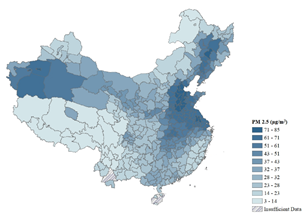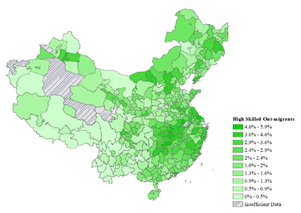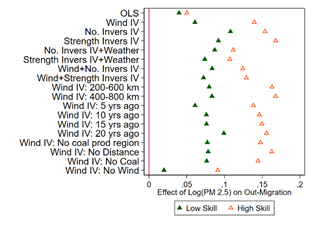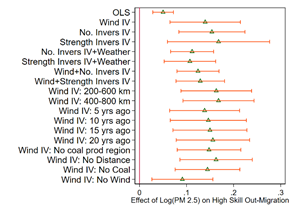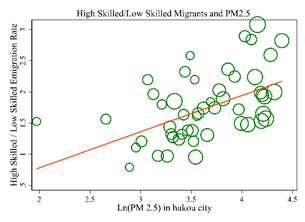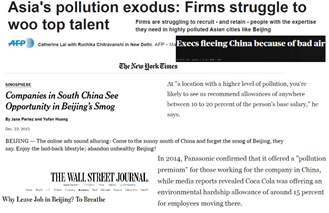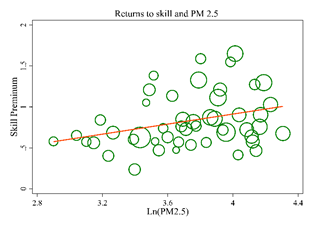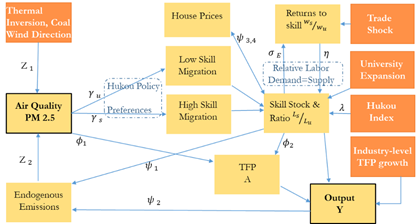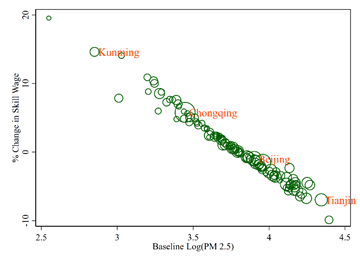Educated, skilled workers are more likely to emigrate away from polluted cities. This affects aggregate productivity and welfare, and also explains ~14% of an enduring macro-development puzzle:
Why do people remain in low-productivity areas when big cities offer higher wages? https://twitter.com/YaleEGC/status/1352228760175726592
Why do people remain in low-productivity areas when big cities offer higher wages? https://twitter.com/YaleEGC/status/1352228760175726592
Greater out-migration of the college-educated from polluted areas is clearly evident even in the raw data in China (see maps), but we use multiple data sources and empirical techniques to uncover the causal effect of pollution on emigration
Implication for aggregative productivity and pollution policy?
Emigration response of the skilled means that the unskilled left behind become less productive. Skilled and unskilled workers are complements in production in China. Asymmetric migration creates a spatial mismatch
Emigration response of the skilled means that the unskilled left behind become less productive. Skilled and unskilled workers are complements in production in China. Asymmetric migration creates a spatial mismatch
As skilled workers leave, firms need to pay them more to get them to stay. Returns to skill rise in polluted cities. Lowering pollution would bring back the skilled to where they would be most productive, raising incomes.
Relationships between pollution, skilled and unskilled workers, productivity are complicated. e.g. pollution affects health, skilled worker presence changes industrial composition. We use multiple instruments to estimate a general equilibrium model with all these feedback loops
The model helps us evaluate counterfactual policies. Capping pollution in Beijing or relocating high-emissions coal-fired power from upwind of Beijing would increase Beijing incomes by 14.4%. More than half driven by the re-sorting of workers; rest by improvements to health.
Moving coal-fired plants away from cities where the skilled are more productive (e.g., tech centers) to other parts of the country, can increase welfare and raise China’s GDP by 6.7%. If you simultaneously relax mobility frictions in China, the welfare gains are even larger
A 'misallocation puzzle' in macro is why people remain in low-productivity areas, when they can earn much higher wages in big cities. Our model shows that skilled workers’ distaste for pollution explains ~14% of the productivity gaps across representative pairs of Chinese cities.
China has targeted its pollution caps at the most productive cities like Beijing. Researchers have documented how pollution lowers productivity by adversely affecting physiology. We show that spatial mobility of workers are just as important a mechanism as direct health effects.

 Read on Twitter
Read on Twitter